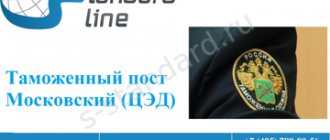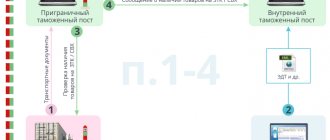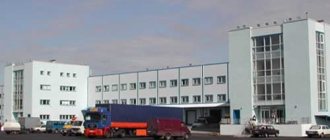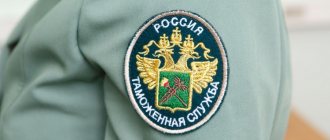An import license is used when a government needs to restrict certain goods from entering a country. Export - on the contrary, if you need to keep goods within the country. These are non-tariff regulation measures, decisions on them are made by the Government of the Russian Federation.
Keep records of exports and imports using the simplified tax system in the Kontur.Accounting web service. Currency accounting and work instructions, taxes, automatic salary calculation and reporting in one service
Get free access for 14 days
Often, an import license is introduced temporarily if the state is complying with international agreements or believes that certain groups of goods may adversely affect the safety of citizens and the economic situation of the country. A license is also introduced if the state wants to transfer exclusive rights to import/export specific products.
The main document regulating the issuance of import and export licenses is the Federal Law of December 8, 2003 N 164-FZ (as amended on November 28, 2018) “On the fundamentals of state regulation of foreign trade activities,” Article 24. Licensing in the field of foreign trade in goods.
When is a FSTEC license required?
In the event that products sold or transferred outside the Russian Federation, in terms of their indicators, properties or characteristics, fully comply with any item specified in the control lists, it is required to obtain a FSTEC Export License. The checklists are divided into six categories and contain significant lists with a succinct description of each item. There are many goods that are similar to controlled goods, but are not - in this case, when submitting a declaration for goods for export, you must provide the customs authorities with a conclusion that they are not classified as dual-use.
Why can they refuse to issue a license?
Keep records of exports and imports using the simplified tax system in the Kontur.Accounting web service. Currency accounting and work instructions, taxes, automatic salary calculation and reporting in one service Get free access for 14 days
If you do not have experience in obtaining licenses, contact lawyers who specialize in this area. A license can be refused due to mere trifles, and a lawyer will help you avoid failure. The most common reasons for refusal:
- an incomplete package of documents has been collected;
- the document data does not correspond to reality;
- at least one of the documents in the package has been suspended or terminated;
- the foreign trade contract violates the international treaties of our country;
- If you receive a license to import a quota-regulated product, the quota for it may be exhausted.
When a license is not needed
| There are many goods similar in their characteristics to controlled ones, but they are not. To ensure that the issuance of a declaration sent to the electronic declaration center for such goods goes smoothly, it is advisable to provide an identification report to the customs authorities. This conclusion is issued by FSTEC or authorized bodies and confirms that the exported product is not included in the control lists, and therefore a FSTEC license is not required for its export. ⇐ Example of identification report |
Our services
Wanting to save your time, we are ready to provide a full range of services for obtaining licenses in the minimum time frame specified by law. To order a service, select the type of license you need:
| Type of license | List from Appendix 2 to the decision of the EEC Board No. 30 |
| For the import and export of encryption (cryptographic) means | List 2.19 |
| For the import of radio-electronic equipment and high-frequency devices | List 2.16 |
| For the import and export of narcotic drugs, psychotropic substances and their precursors | List 2.12 |
| For the import and export of ozone-depleting substances | List 2.1 |
| For the import of plant protection products (pesticides) | List 2.2 |
| For the export of cultural property | List 2.20 |
| For the export of raw materials containing precious metals | List 2.10 (Table 2) |
| For the import and export of human organs and tissues, blood and its components | List 2.21 |
Procedure for preparing a request
The procedure for preparing a request for an FSTEC export license is slightly different from other types of permits and can be divided into four stages:
| —Obtaining certificates from the manufacturer of the goods (about state secrets, R&D, security documents) — Signing the end user certificate (if this was not previously provided for in the contract) —Preparation of an application to Rospatent —Final generation of a license request to FSTEC |
How to get a license
Keep records of exports and imports using the simplified tax system in the Kontur.Accounting web service. Currency accounting and work instructions, taxes, automatic salary calculation and reporting in one service Get free access for 14 days
To obtain permission, collect a package of documents:
- application for a license;
- a copy of the foreign contract with annexes and additional agreements, specifications for the contract;
- a copy of the TIN and certificate of state registration of a legal entity or individual entrepreneur;
- if available, a copy of the business permit;
- depending on the type of product and its country of origin, other documents may be required (for example, technical characteristics of imported goods) or coordination with other government agencies (for example, permission from the radio frequency service);
- receipt for payment of the license fee - 7,500 rubles.
The licensing authority makes a decision within 3 working days. After this, the original license is handed over to the person who requested it, or sent by registered mail (the delivery method is indicated in the application).
Required documents
| ✔Covering letter and application ✔Technical description of the product (passport, specifications, instructions) ✔Constitutional documents from the exporter ✔End user warranty (from the buyer) ✔Information about state secrets (from the manufacturer) ✔Information about the transfer of documents to Rospatent (from the applicant) ✔Payment order (state duty 7500 rubles) |
There is no need to be fully prepared to start working on a license. Receiving some documents may take considerable time. To avoid possible mistakes, we recommend starting this process together with our specialists.
Price and terms of support
| Since each controlled product has unique properties, the period for obtaining a permit significantly depends on the quality of technical documentation and warranty obligations under the contract. When the kit is prepared by our specialists, the license will be ready within a calendar period of 2 to 3 weeks. The cost of support may vary for different dual-use categories, and the price will be finalized upon review of the export project documentation you have. ⇐ Example of an FSTEC export license |
KEC permission to export products subject to comprehensive control
A permit from the Export Control Commission of the Russian Federation or a KEC permit gives the right to carry out foreign economic transactions with products that are not subject to the lists (lists) of controlled goods and technologies, but which can be used by a foreign state or a foreign person to create weapons of mass destruction, their means delivery, other types of weapons and military equipment. It is necessary to prevent the acquisition of such goods in the interests of persons in respect of whom there is information received in accordance with the legislation of the Russian Federation about their participation in terrorist activities.
Examples of dual-use goods
Below are some checklist items. To learn more about the nature of dual-use items that are subject to export controls, click on ⇒ full list
and search for the required string
- “List of chemicals and equipment” - Decree of the President of the Russian Federation dated August 28, 2001 No. 1082
- “Microorganisms, toxins and equipment” - Decree of the President of the Russian Federation dated August 20, 2007 No. 1083
- “Equipment and materials for nuclear purposes” - Decree of the President of the Russian Federation dated January 14, 2003 No. 36
- “Equipment and materials for missile weapons” - Decree of the President of the Russian Federation dated 08.08.2001 No. 1005
- “Products and technologies for weapons” - Decree of the President of the Russian Federation dated December 17, 2011 No. 1661
- “List of nuclear materials” - Decree of the President of the Russian Federation dated February 14, 1996 No. 202
Ammonium bifluoride, sodium sulfide, cyanogen chloride, potassium fluoride, ethyl diethanolamine, sulfur monochloride, toxic gas control systems, reaction vessels, titanium or glass storage vessels
⇒ complete list
Avian influenza and plague virus, ricin, cholera toxin, genetically modified microorganisms, two-door disinfection autoclaves, airlocks with airtight doors
⇒ complete list
High precision grinding and milling machines, vibration testing systems, angle measuring instruments, superconducting magnets, aluminum and titanium alloys, mass spectrometers
⇒ complete list
Unmanned aerial vehicles, turbojet engines, radial ball bearings, aluminum powder, zirconium, fuel components, radar rangefinders
⇒ complete list
Gas masks, body armor and plates for them, rolling bearings, lathes, systems for intercepting communication signals, dosimeters and radiometers, hovercraft, shaped charges and detonating cords
⇒ complete list
Rotors and centrifuges, bellows valves, heat exchangers, frequency converters and vacuum pumps, high pressure pipes, primary circuit pumps, compressors, high voltage power supplies
⇒ complete list
If the exported product fully complies with at least one item on the control list, then its export requires obtaining a one-time FSTEC License.
Information on licensing activities of the FSTEC of Russia in the field of export control
| Procedure for obtaining a general license | 276 KB | 4364 |
| Procedure for obtaining a general license | 97 KB | 1661 |
The difference between a general license and a one-time license is that a general license is issued only for the export of a certain type of controlled product, indicating its maximum quantity, without indicating a specific buyer of the goods in a certain country. But the procedure for obtaining a general license differs significantly from the procedure for obtaining a one-time license.
A general license is issued to carry out foreign economic transactions with a certain type of controlled product, indicating the maximum quantity (for goods) and the scope of transferred rights (for technologies) and the country of end use without identifying a specific buyer (recipient).
A general license can only be issued to a Russian participant in foreign economic activity (FEA), registered as a legal entity or individual entrepreneur, who has created an internal export control program and has received a certificate of state accreditation in the prescribed manner.
The list of foreign countries and types of controlled products for which general licenses are issued is determined by the Government of the Russian Federation.
The decision to issue a general license, which sets its validity period, is made by the Government of the Russian Federation.
The preparation of a draft act of the Government of the Russian Federation on the issue of issuing a general license and its submission to the Government of the Russian Federation is carried out by the licensing authority (FSTEC of Russia) in the prescribed manner.
Just as when obtaining one-time licenses, the requirements of the legislation of the Russian Federation when obtaining general licenses are set out in the Regulations on licensing foreign economic transactions with goods, information, work, services, results of intellectual activity (rights to them), in respect of which export control has been established, approved by the resolution Government of the Russian Federation dated September 15, 2008 N 691, and in the Regulations on the implementation of control over foreign economic activity, approved by the relevant resolutions of the Government of the Russian Federation for each of the six Lists of controlled products [1].
To obtain a general license, the applicant submits to the licensing authority (FSTEC of Russia): an application for a license in the prescribed form.
The application for a general license shall be accompanied by:
a covering letter indicating the details of the document confirming the fact of payment of the state fee for the grant of a license;
a document containing accurate information about the listed products with attached copies of documents confirming their technical characteristics and scope of application.
The submitted documents must be properly executed:
the application for a license is signed by the applicant (for a legal entity - by the head of the organization or his authorized person);
changes to the application, as well as erasures and corrections are not allowed;
documents (copies of documents) submitted to obtain a license are certified by the signature and seal (if any) of the applicant;
documents (copies of documents) in foreign languages are submitted accompanied by duly certified translations into Russian;
Each document (copy of a document), consisting of two or more sheets, is stitched and numbered, about which a certification note is made on the back of the last sheet.
FSTEC of Russia registers the submitted documents and within 3 days checks the correctness of their execution and compliance with established requirements, as well as the completeness and reliability of the information contained in them.
Submitted documents (copies of documents), if they do not meet the established requirements for their completeness, content or design, are returned for revision. If inaccuracies or contradictions are identified in the submitted documents (copies of documents), in case of inconsistency, the licensing authority has the right to request additional documents or copies thereof.
The applicant is liable for providing false information in accordance with the legislation of the Russian Federation.
FSTEC of Russia has the right to refuse to issue a license on the following grounds:
incorrect execution of an application for a license;
non-compliance of the submitted documents (copies of documents) with the established requirements;
presence in the submitted documents (copies of documents) of incomplete or unreliable information;
negative conclusion of the state examination of a foreign economic transaction;
carrying out a foreign economic transaction under conditions under which damage is caused or there is a threat of damage to the interests of the Russian Federation or its international obligations in the field of non-proliferation of weapons of mass destruction, their means of delivery, as well as in the field of export control are violated;
violation of the rights of the Russian Federation to the results of intellectual activity obtained at the expense of the federal budget or with their involvement, including in the identification, consolidation of these rights or their use, implemented during the development and (or) production of controlled products transferred to a foreign person;
failure to provide two or more times information on the execution of licenses within the established time limits;
application of special economic measures in the form of prohibitions and restrictions on the implementation of foreign economic transactions provided for by the legislation of the Russian Federation, if the foreign economic transaction is subject to such measures;
a decision of the Government of the Russian Federation that has entered into force to deprive the applicant of the right to engage in certain types of foreign economic activity if the effect of such a decision extends to foreign economic operations for which a license is requested;
If the Government of the Russian Federation makes a decision to issue a general license, the provision of a general license is carried out within a period not exceeding 6 working days.
A notice of refusal to issue a license is sent (handed) to the applicant in writing, indicating the reasons for the refusal.
The license is issued to the applicant in one copy and is not transferable to other persons. Changes to the license are not permitted, with the exception of extending the license term.
Licenses that have expired cannot be renewed.
The decision to cancel the general license is made by the Government of the Russian Federation upon the recommendation of the FSTEC of Russia.
The decision to suspend or cancel a license is brought to the attention of the Federal Customs Service of Russia by the FSTEC of Russia (if the license is used to carry out foreign economic transactions related to the movement of controlled products across the customs border of the Eurasian Economic Union) and with a reasoned justification to the attention of the license holder no later than one day the working day following the day such a decision was made.
Upon receipt of such a decision, the license holder is obliged to immediately take measures to terminate foreign economic transactions with controlled products carried out under a license that has been canceled or the validity of which has been suspended.
If the circumstances that led to the suspension of the license are eliminated, the FSTEC of Russia makes a decision to resume its validity, and notifies the license holder and the Federal Customs Service of Russia.
A notice of cancellation of a license, as well as of suspension or renewal of its validity, is signed by an authorized official of the FSTEC of Russia.
The form of notice sent to the license holder about the cancellation of the license, as well as about the suspension or renewal of its validity, is determined by the person who signed such notice.
The original license for carrying out foreign economic operations related to the movement of controlled products across the customs border of the Russian Federation, and its copies certified by the owner, are provided to the customs authorities of the Russian Federation in the manner established by the Federal Customs Service of Russia.
To maintain statistical records and analyze foreign trade activities in relation to controlled products, license holders send information on the execution of the licenses they have received to the FSTEC of Russia.
Information on the execution of the general license is submitted quarterly, before the 20th day of the month following the last month of the reporting quarter, with copies of contracts (contracts, agreements) attached, in accordance with which foreign economic transactions with controlled products were carried out.
For the issuance (provision), registration of a license, renewal of a license and extension of the validity period of a license, a state fee is paid in accordance with subparagraph 92 of paragraph 1 of Article 333.33 of the Tax Code of the Russian Federation in the amount of:
for providing a license - 7,500 rubles;
for re-issuance of a document confirming the presence of a license - 750 rubles;
for extending the license validity period - 750 rubles.
Bank details for paying state duty are posted on the official website of the FSTEC of Russia.
[1] DN - Decree of the Government of the Russian Federation dated 06/07/2001 N 447
RO - Decree of the Government of the Russian Federation dated April 16, 2001 N 296
Nuclear weapons - Decree of the Government of the Russian Federation dated June 14, 2001 N 462
BO - Decree of the Government of the Russian Federation dated August 29, 2001 N 634
HO - Decree of the Government of the Russian Federation dated September 24, 2001 N 686
IP - Decree of the Government of the Russian Federation dated December 15, 2000 N 973
Customs Union and Licensing
When exporting to the territory of the Customs Union or importing from the territory of the Customs Union dual-use goods, that is, those contained in the lists of controlled products, it is necessary to obtain a FSTEC License. When filling out the statistical reporting form of a foreign trade participant, a note is made in the appropriate column about the license number on the basis of which the foreign economic transaction was carried out. There is no other way to control the movement of your cargo.
- About the conclusion of FSTEC
- About KEC permission
- About excont
- About the FSTEC license
- About the conclusion of the FSVTS
We will be happy to assist you and your business. Contact us by phone listed on the website or fill out the feedback form below.
What will be stated in the license
Keep records of exports and imports using the simplified tax system in the Kontur.Accounting web service. Currency accounting and work instructions, taxes, automatic salary calculation and reporting in one service Get free access for 14 days
A license is a document containing a list of data. It must indicate:
- name or company name of the applicant, buyer and seller, manufacturer of the goods;
- type of license (for import or export);
- license permit number;
- validity period, type of transaction, payment currency, description and cost of each item, time of shipment of goods - for one-time licenses;
- name of the authority that issued the license.





